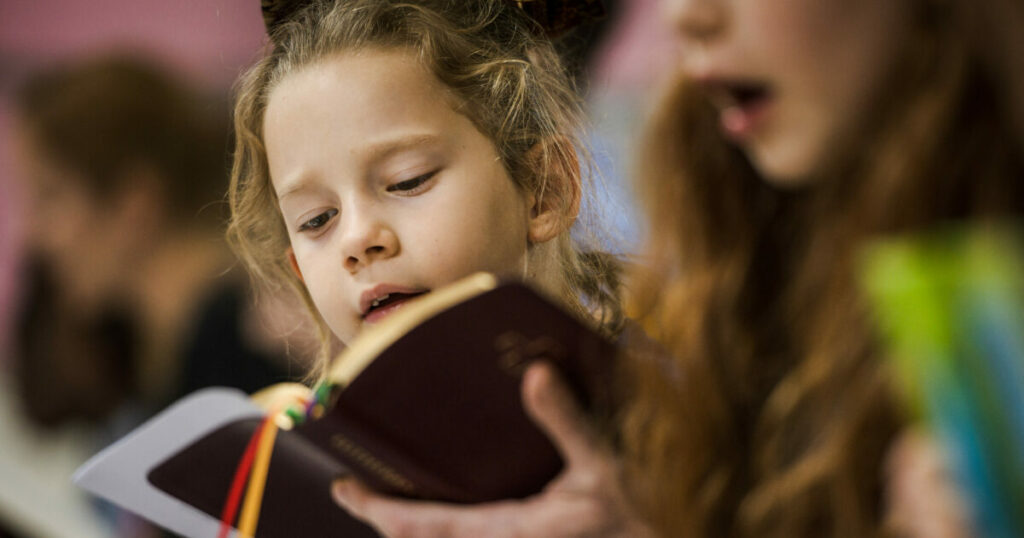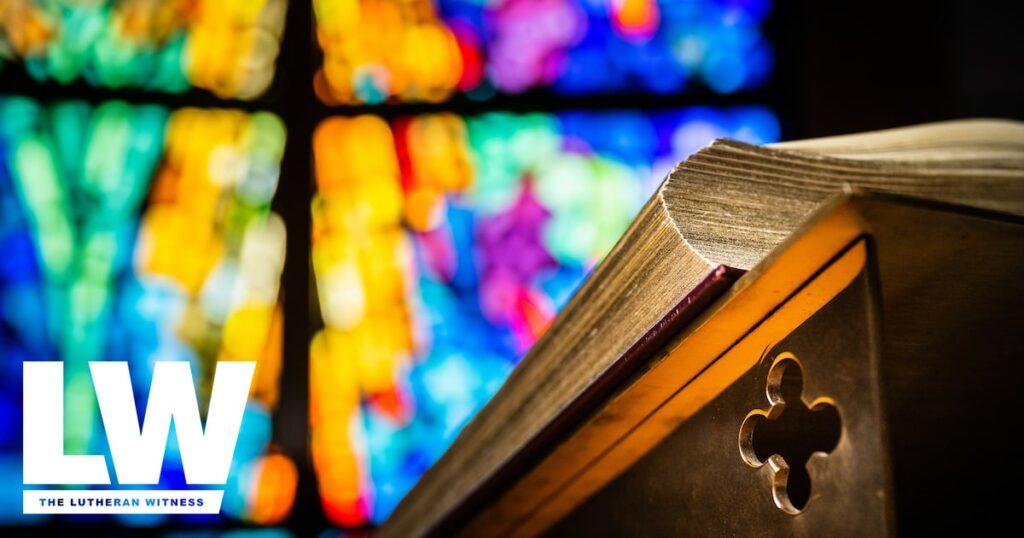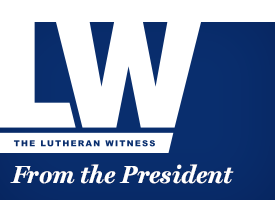by Matthew C. Harrison
It’s a longstanding popular myth that children can’t sing hymns, don’t want to sing hymns and will not sing hymns. Actually, children will not enjoy hymns if the adults teaching them can’t sing hymns, don’t want to sing hymns and will not sing hymns. In my years as a parish pastor, I have had the chance to teach loads of hymns to children — and not just the easy ones. I recall teaching the vacation Bible school kids “Isaiah, Mighty Seer in Days of Old” (LSB 960) by Martin Luther, which is actually the “Sanctus” from his German version of the liturgy for the Lord’s Supper. I’d usually tell the kids, “You know what, this is a very special hymn. Your parents don’t even know it, and they think it’s too hard. But I know you can sing it.”
After I left that parish, the vacancy pastor told me about a humorous incident. That church has a wonderful tradition of Wednesday night confirmation and Bible class for all the kids. It was recess time, and the vacancy pastor was outside with the children. A little farm boy ran up and looked straight up at the pastor. “You know what, Pastor? People think ‘Isaiah, Mighty Seer’ is hard. But it ain’t.” Then he ran off to play.
There are all kinds of issues raised by such a story, I know. Are all other songs, not in the hymnal, forbidden? No, of course not. I’ve spent most of my life playing banjo and guitar and singing simple and fun songs with kids, often around campfires and at picnics. I myself know dozens of simple songs for kids, many of which teach Jesus and are quite appropriate for a children’s choir in church. But that reality ought never sell us on not teaching kids to sing the liturgy and hymns. Oftentimes congregations themselves struggle to sing because their churches (chancels, aisles and under the pews) are filled with carpet that kills sound and singing. Even if your parish is using less traditional music, there is no excuse for not introducing and using available resources and settings of the liturgy that deliver Jesus to all in attendance.
Our church’s Lutheran Service Book is found in more than 90 percent of our congregations. It contains many new hymns and various versions of the liturgies. It contains a number of well-written hymns that have come from non-European sources. It also contains those basic hymns that are capable of passing on the faith. Luther’s opponents recognized this strength of the Lutheran church. Prior to the Reformation, the service was mostly a spectacle. After the Lutheran Reformation, the people sang the faith, both liturgy and hymns, with a fervor not seen since perhaps the times of the Early Church. “Let the word of Christ dwell in you richly, teaching and admonishing one another in all wisdom, singing psalms and hymns and spiritual songs, with thankfulness in your hearts to God” (Col. 3:16).
There are songs and hymns we sing that make us mournful and repentant (“On Jordan’s Bank the Baptist’s Cry,” “I Lay My Sins on Jesus”); humble and thankful (“Chief of Sinners Though I Be,” “Now Thank We All Our God”); secure in Jesus (“A Mighty Fortress”); full of courage to confess (“Lord, Keep Us Steadfast in Your Word”); happy and joyous, looking to heaven (“Jerusalem, My Happy Home,” “Behold A Host Arrayed in White”); thankful to be baptized (“God’s Own Child, I Gladly Say It”); ready to receive the Lord’s Supper (“What Is This Bread,” “I Come, O Savior, to Thy Table”); and on and on. These songs do more than effect emotion or even devotion. They bear the rich, deep words of Holy Scripture — the very Gospel itself — sung right into our hearts and minds.
The following brief story is one that most pastors have experienced in some way. I was visiting a nearly 100-year-old saint in her last days in an aged-care facility. She was blind. She was all but deaf. I could not carry on a conversation with her, even shouting. But when I sang the communion liturgy, she sang along. I was floored. And she also knew the words of a great Gospel-soaked hymn. She sang along as I sang with her:
Jesus, Thy blood and righteousness
My beauty are, my glorious dress;
Midst flaming worlds, in these arrayed,
With joy shall I lift up my head. (LSB 563:1)
That hymn holds fast, rich with the promises of life eternal in the Gospel, and is worthy to be sung in the hour of death. Whatever we give our children, and our people, let’s not take this comfort away from them.
-Pastor Harrison






YES! Thank you, thank you, thank you! So beautifully written and it makes my heart full of joy. I’m 73 and what you wrote is exactly what I believe. President Harrison, my husband and I pray for you each morning, always asking God to give you courage and a caring heart for each new day. Forward in Christ!
Thank you so much, President Harrison. This topic has been on my heart and mind for quite some time. Your ending sentence is essential for all leaders to earnestly think about, pray about and act upon. Is there any way your entire article could be given to each LCMS principal, teacher and Sunday school director as a mass mailing? I have served in numerous churches, schools that don’t even teach A Mighty Fortress Is Our God, I am Jesus Little Lamb, or Children Of The Heavenly Father yet alone other less familiar hymns. Each decade we seem to be losing more of our beautiful hymnody with our youth. They are then losing the sacred words of Scripture in them and the comfort, knowledge and joy of that scripture.